NEWS
Listening Kids | The White Paper is now available online
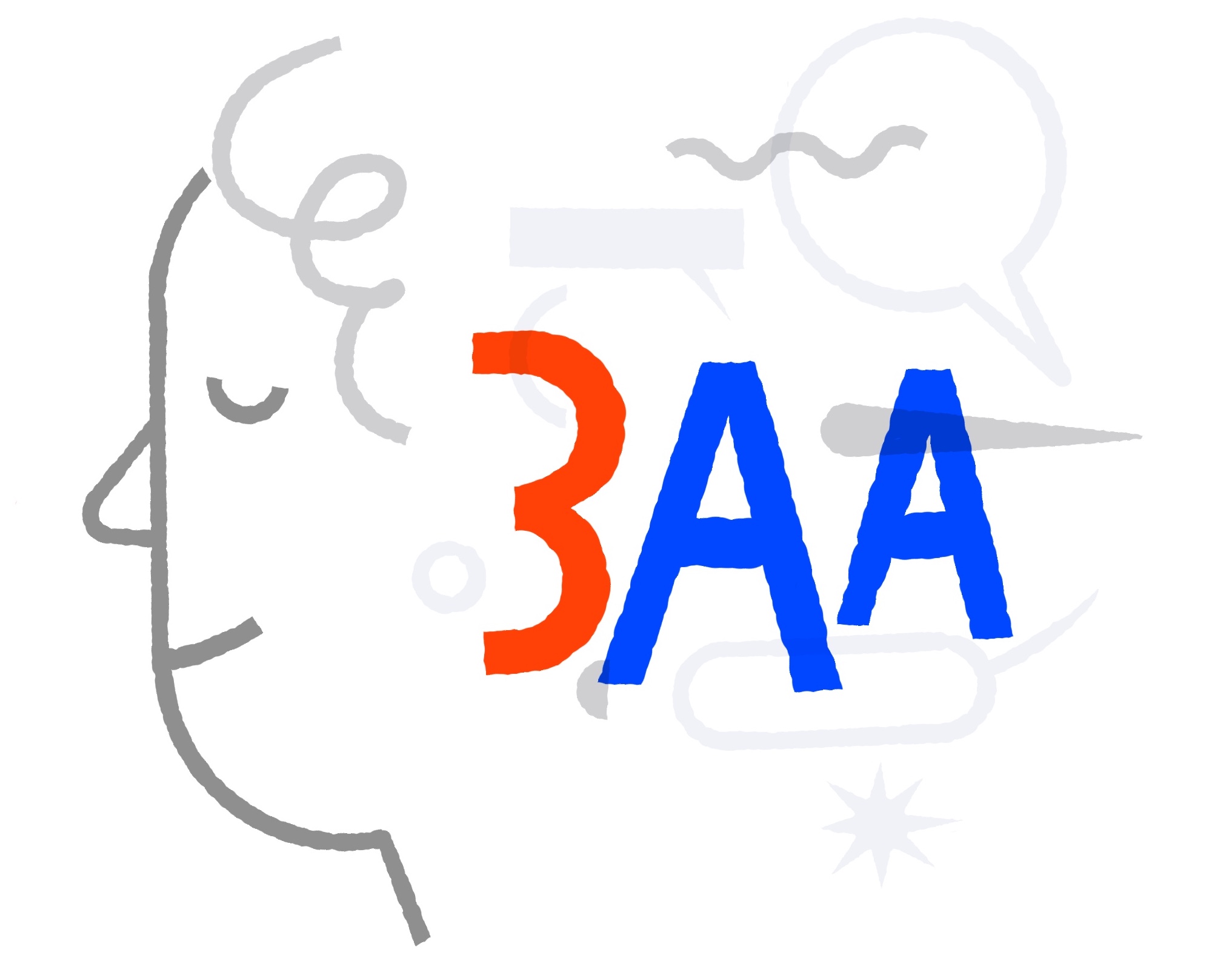
Talks and masterclasses with Gianfranco Bandini, Tjeerd van den Elsen, Le Collectif Wow!, Radioimmaginaria, Ana Gonzalez and Sara de Monchy.
If you do not have much time to read below, here you can get direct access to the white paper produced in collaboration with Nicola Giorgio.
Just a warning: these contents are in Italian.
You might be interested instead in listening to the tapes of the talks that were given in English. You can find them all HERE.
If you want to have a look nonetheless, you will find yourself on an online accessible board, where the visual mapping of each talk is accompanied by the audio recordings, video clips, bibliographies and the key points shared by each speaker.
To listen to the audio files and watch the video clips, click on the corresponding players.
The contents should be read counterclockwise.
Quotations are in blue, first-level insights are in orange, second-level insights are in gray.
If you know teachers, practitioners, producers and authors interested in audio storytelling for children, please share and pass the word!
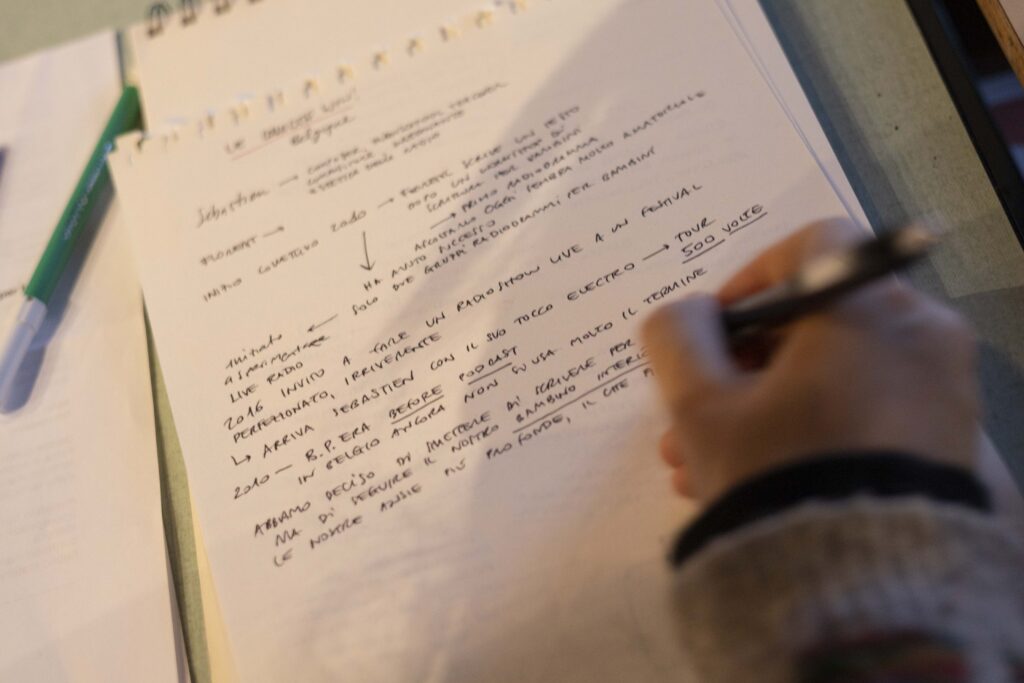
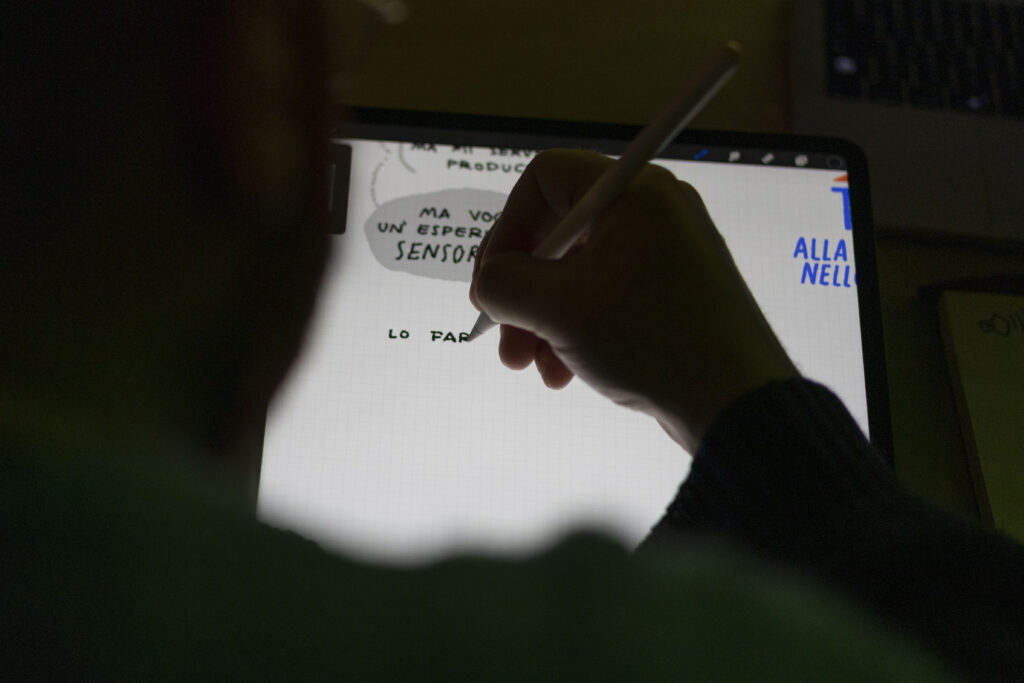
Ph. Alisa Martynova
Last December 9, 2022, we kicked off the fourth edition of LUCIA with Listening Kids / Bambini all’Ascolto, a seminar that took shape around our interest in experimenting with new audio formats for young publics, and presented six different perspectives on audio storytelling for children.
We thus gathered in Florence a group of researchers but also audio makers and podcasters who are already innovating audio languages and formats for kids, to share insights and knowledge and to learn from those who study the complex ways in which childhood is coming of age through listening to and sharing stories.
It is as if we were robbed of the ability to tell a story. In 1936, in The Narrator, Walter Benjamin wrote: “It happens more and more rarely that we meet people who know how to tell something properly: and embarrassment spreads more and more often when, in a gathering, there is someone who expresses a desire to hear a story. It is as if we were robbed of a faculty that seemed inalienable, the most certain and secure of all: the ability to exchange experiences.”
And yet, listening again to the Kids Listening talks, one discovers that “stories, our own and others’, allow us to enter the world”– as Prof. Gianfranco Bandini puts it – because by narrating “we don’t just pass on contents but also modes of reasoning… the task of storytelling for children is not to make them like us but is to give them the possibility, the scaffolding – to make SCAFFOLDING – so that they can then make choices.”
Similarly, from Tjeerd van den Elsen, a Dutch teacher and podcaster, we come to discover that children respond more creatively to stories they have listened to than to those they have seen on screen, that they have an easier time remembering what they have heard than what they have read, that through the spoken word they access much more complex knowledge than they might be exposed to by reading, that by listening they learn empathy.
That audio, as Sara de Monchy – author of one of the most popular children’s podcasts in the Netherlands – says, is the key to opening the doors of imagination in young children, and that to win the imaginations of young audiences, especially those on the cusp of childhood and adolescence, on the threshold of a season in which disenchantment will creep in unmercifully, means embracing emotion and structure.
We are talking about young people at that age when they think they are independent, they know what is cool and what is not, but at the same time they are not sure what their place in the world is and feel judged by peers…. The same audience as Terrestrials, a podcast produced in-house by Radiolab and about which, producer Ana Gonzalez told us the tremendous editorial orchestration, the collaborative ethos behind each and every episode, the multiple drafts and rehearsals, the involvement of listening focus groups, the multimedia universe of video clips, songs, and educational activities surrounding it.
A public that is as impenetrable at times as a black box, a public that occasionally wants to tell its own story, as is happening with the expanded Radioimmaginaria newsroom, made up of children and teenagers who have found themselves sharing a medium and creating a community around it: radio for us is a bit like a flag, and the idea of waving around the world the opinion of teenagers and letting people know what teenagers think about, what is going on around us, we like it very much.
Last but not least, a public whose voice must be listened to – as Florent Barat and Sébastien Schmitz of Le Collectif Wow ! remind us-because it demands the same care given to adults. We must not mock them,” they say, “treating children’s words seriously gives them value and attention. That is what we hope to do by experimenting with the sound and languages of radio and podcasting, and it is a hope we share with you who will have read us so far.
Enjoy listening and reading then!
The online white paper is available HERE.
If you are only interested in listening to the full recordings of the talks, you can find them HERE.
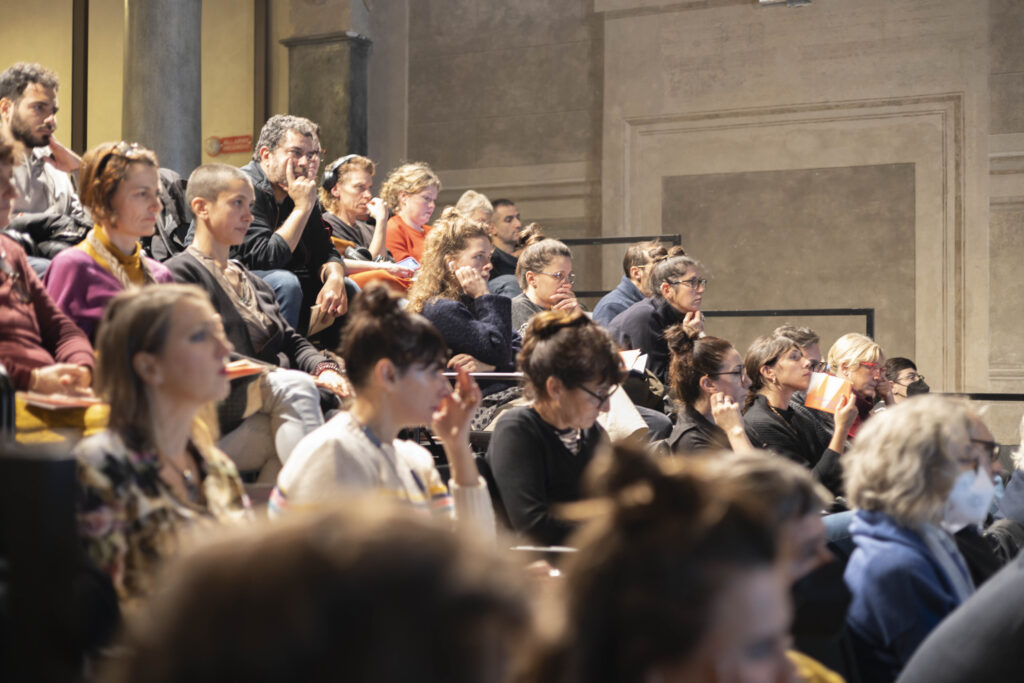
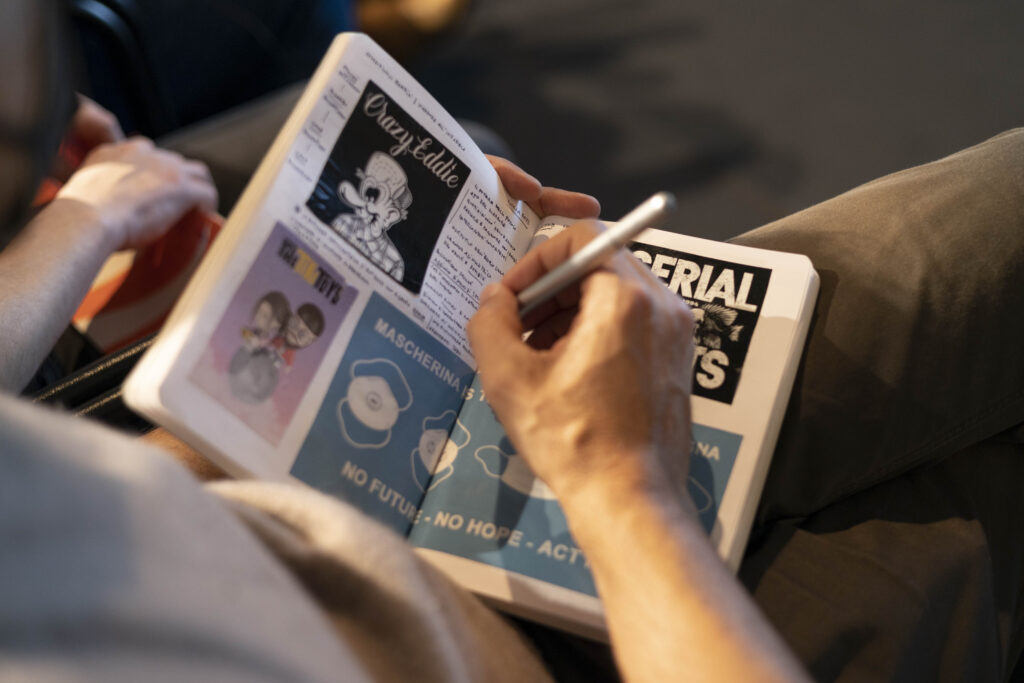
Bambini all’ascolto is supported by Kingdom of the Netherland – Ambasciata Olandese in Italia. Thanks to Libreria Todo Modo and to the Dipartimento di Formazione, Lingue, Intercultura, Letterature e Psicologia at UNIFI. Thanks to CANGO Cantieri Goldonetta for the hospitality.
If any questions, if you want to get in touch with us about the very same topics, write to lucia@radiopapesse.org.